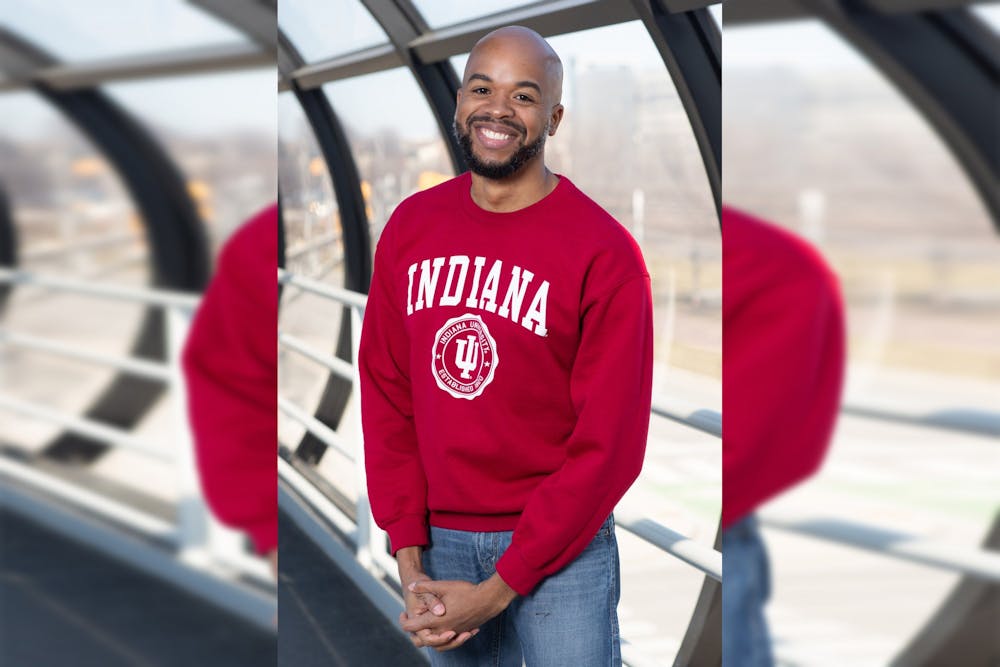The IU Board of Trustees, composed of nine leaders elected by IU alumni to three-year terms, only has two Black members. Representation in any group is important, and especially one advocating for students.
This year, Jeremy Morris, a Black alumnus, is running to add Black and millenial representation to the board.
“When I was an undergraduate, about 4.3 percent of the student body were African American students at IU-Bloomington,” Morris said. “In 2020, the enrollment of African American students was 4.7 percent of the student body. Nothing has changed. So we have a population that has relatively remained unchanged for 15 years.”
Morris is a three-time IU alumnus. He received a bachelor’s degree in African American and Diaspora Studies in 2005 from IU-Bloomington, a master’s in Higher Education and Student Affairs Administration in 2007 and a J.D in 2014 from IU Robert H. McKinney School of Law.
While at IU for his undergraduate degree, Morris was a director on the Indiana Memorial Union Board in 2003. He also served as a Faculty and Staff for Student Excellency Mentoring peer mentor for incoming freshmen.
He was involved in Residence Hall Association Student Government, Dean Richard McKaig’s Student Advisory Board and was a Student Athlete Services mentor and tutor. Morris is also a member of Kappa Alpha Psi Fraternity, and he served as the National Panhellenic Council Greek council president.
Currently, Morris serves as an Assistant U.S. Attorney for the Southern District of Indiana. He is also an adjunct law professor at the McKinney School of Law, teaching subjects in criminal law.
Morris said he envisions implementing three major changes if he is selected to serve on the Board of Trustees.
“I want to make IU more affordable for undergraduate students by freezing the cost of attendance,” Morris said. “Other schools like Purdue have a tuition freeze, and I believe that is important because it would buy us more time to assess how to make IU more affordable.”
Morris said it is worrying that students are graduating from IU with more student debt than students who graduated in the 1980s.
“This is not a novel idea,” he said. “It is a policy that institutions have across the United States, and I think we should do that for our students.”
Morris said local institutions can help make college more affordable and accessible to students.
“I think we can do this by working with local industries and our graduates,” he said. “I think when graduates leave they go into leading these industries, and I think we can make these industries invest in making this possible.”
Morris said the second part of his plan is creating a student loan forgiveness plan for undergraduates.
“I want to implement a policy that if you graduate and work in Indiana for four years, you can receive up to $3,000 in loan forgiveness every year which goes up to four years,” Morris said.
Lastly, he said he wants to make IU more diverse.
“I have worked in higher education and my work is looking at redeveloping efforts to increase Indiana University’s diversity recruitment in order to attract and retain students and faculty of color,” Morris said.
Morris said there has not been anyone on the board who represents Gen Z or millennial populations.
“I think it’s time that I run to open the door and give folks the opportunity to understand what is happening at an institutional level at Indiana University,” Morris said.
Morris said he had the most amazing experience at IU despite the challenges of being a Black student because of the many opportunities that were available to him.
“I will always choose IU and definitely recommend it to others,” Morris said.
You can follow Morris on social media to learn more about his campaign at @jmorrisforiu on Instagram, Facebook and Twitter. His website is www.jmorrisforiu.com.





![Dean_Reingold_ltr[52] (1).jpg](https://snworksceo.imgix.net/ids/25483b05-dabd-4378-92bd-70a32c2579f0.sized-1000x1000.jpg?ar=16%3A9&w=500&dpr=2&fit=crop&crop=faces)
